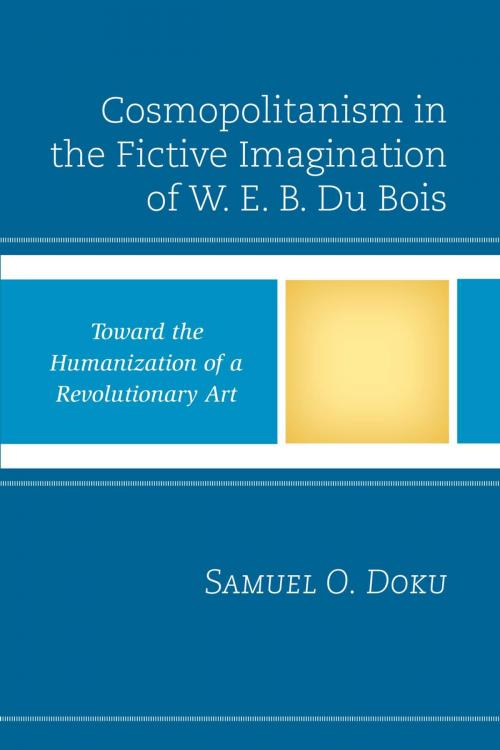Cosmopolitanism in the Fictive Imagination of W. E. B. Du Bois
Toward the Humanization of a Revolutionary Art
Fiction & Literature, Literary Theory & Criticism, Black, American, Nonfiction, Social & Cultural Studies, Social Science| Author: | Samuel O. Doku | ISBN: | 9781498518321 |
| Publisher: | Lexington Books | Publication: | December 3, 2015 |
| Imprint: | Lexington Books | Language: | English |
| Author: | Samuel O. Doku |
| ISBN: | 9781498518321 |
| Publisher: | Lexington Books |
| Publication: | December 3, 2015 |
| Imprint: | Lexington Books |
| Language: | English |
This booktraces W.E.B. Du Bois’s fictionalization of history in his five major works of fiction and in his debut short story The Souls of Black Folk through a thematic framework of cosmopolitanism. In texts like The Negro and Black Folk: Then and Now, Du Bois argues that the human race originated from a single source, a claim authenticated by anthropologists and the Human Genome Project. This book breaks new ground by demonstrating the fashion in which the variants of cosmopolitanism become a profound theme in Du Bois’s contribution to fiction. In general, cosmopolitanism claims that people belong to a single community informed by common moral values, function through a shared economic nomenclature, and are part of political systems grounded in mutual respect. This book addresses Du Bois’s works as important additions to the academy and makes a significant contribution to literature by first demonstrating the way in which fiction could be utilized in discussing historical accounts in order to reach a global audience. “The Coming of John”, The Quest of the Silver Fleece, Dark Princess: A Romance, and The Black Flame, an important trilogy published sequentially as The Ordeal of Mansart, Mansart Builds a School, and Worlds of Color are grounded in historical occurrences and administer as social histories providing commentary on Reconstruction, Jim Crow segregation, African American leadership, school desegregation, the Pan-African movement, imperialism, and colonialism in Africa, Asia, and the Caribbean.
This booktraces W.E.B. Du Bois’s fictionalization of history in his five major works of fiction and in his debut short story The Souls of Black Folk through a thematic framework of cosmopolitanism. In texts like The Negro and Black Folk: Then and Now, Du Bois argues that the human race originated from a single source, a claim authenticated by anthropologists and the Human Genome Project. This book breaks new ground by demonstrating the fashion in which the variants of cosmopolitanism become a profound theme in Du Bois’s contribution to fiction. In general, cosmopolitanism claims that people belong to a single community informed by common moral values, function through a shared economic nomenclature, and are part of political systems grounded in mutual respect. This book addresses Du Bois’s works as important additions to the academy and makes a significant contribution to literature by first demonstrating the way in which fiction could be utilized in discussing historical accounts in order to reach a global audience. “The Coming of John”, The Quest of the Silver Fleece, Dark Princess: A Romance, and The Black Flame, an important trilogy published sequentially as The Ordeal of Mansart, Mansart Builds a School, and Worlds of Color are grounded in historical occurrences and administer as social histories providing commentary on Reconstruction, Jim Crow segregation, African American leadership, school desegregation, the Pan-African movement, imperialism, and colonialism in Africa, Asia, and the Caribbean.















